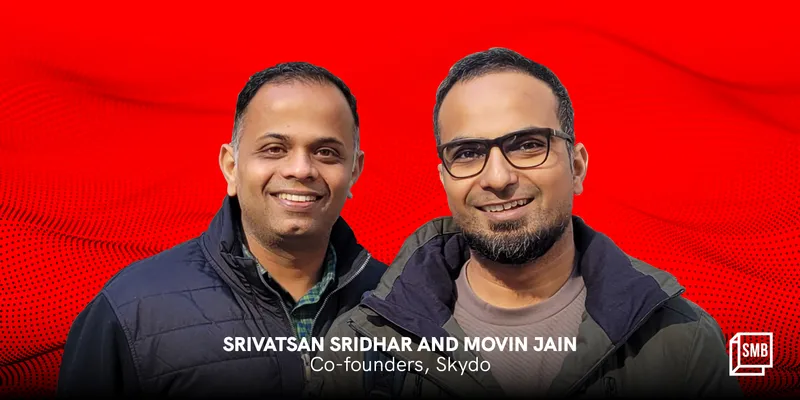How Vehant is leveraging AI/ML to combat crimes and other top stories of the week
This week, SMBStory looked at how Vehant Technologies, which started in the security screening space, is now using artificial intelligence to build safe cities, along with other stories.
The journey of , a Delhi-based security tech company, can be traced back to the 2001 Parliament attack. The government's need for enhanced security led to the development of under-vehicle scanning systems. These were initially imported from the UK at a high cost. Vehant started producing these systems in India to reduce expenses.
Currently, Vehant operates in three main areas: security screening, safe and smart city analytics, and enterprise analytics.
Its clientele includes Airport Authority of India, Delhi Police, Indian Navy, Telangana Secretariat, Adani, and Indore High Court. The company recently secured a substantial order worth Rs 90 crore from the Airport Authority of India and has deployed its security solutions in the new parliament building in New Delhi and at the Telangana Secretariat.
During the COVID-19 pandemic, in 2020, Vehant entered the safe city analytics and enterprise analytics space. Safe city analytics is deployed in Jammu, Gurgaon, Lucknow, and Allahabad. It took around two years to develop the products and the segment was launched in 2022.
Today, Vehant has a workforce of 370 people. It has an R&D facility in Noida, covering an area of 30,000 square feet, and two factories in Greater Noida and Himachal Pradesh, covering a combined area of 40,000 square feet. These facilities serve as spaces for both product development and manufacturing.
In FY23, the company's revenue stood at Rs 73 crore.
Bolas

Bola Raghavendra Kamath, inspired by India's significant cashew production, founded a cashew processing unit in 1958 in Kerala.
The small enterprise quickly secured its first export order from the US within two years of operation. Today, Bolas Agro Pvt Ltd is a Rs 1,600-crore turnover company specialising in the import and export of dry fruits.
Recently, it expanded into the retail sector, opening over 70 stores in just three years. This shift was driven by changing consumer perceptions during the COVID-19 pandemic, which led to increased interest in healthier dietary choices.
“We had a small set-up in our factory in Mangaluru where people would come and buy dry fruits from us, but during COVID-19 lockdowns, entry was restricted. However, the demand kept popping in. In response, we made the decision to open a small retail outlet adjacent to the factory, which marked the turning point for the company,” says Kamath.
For more than five decades, focused only on cashews. The company forayed into coffee export in 2005 and started importing palm and sunflower oil in 2009 as per the demand from importers in the Middle East. However, exploring other dry fruit categories in Karnataka was very expensive, says Kamath.
In 2017, Kamath expanded to categories including almonds, pistachios, walnuts, dates, and all other dry fruits, which accelerated the company’s business growth at 15% CAGR.
Other top picks of the week
Skydo

Bengaluru-based , founded in 2022 by Srivatsan Sridhar and Movin Jain, aims to provide Indian SME exporters with instant and cost-effective cross-border payments similar to the unified payment interface (UPI).
Traditional payment providers like PayPal often charge high fees, up to 10%, for Indian exporters and freelancers receiving payments from overseas clients. Skydo addresses this problem by offering a tech-based platform that charges a flat fee instead of forex charges.
Sridhar, drawing on his experience with companies like Ola and Rupeek, recognised the challenges in the export payment process and partnered with Jain to create Skydo, filling a significant gap in seamless cross-border payments for exporters.
The total turnaround time for the payment to credit to the receiving bank is 1.5 days. Skydo works with DBS Bank to facilitate the transaction and charges a flat fee, eliminating swift fees or card charges.
Sridhar claims that Skydo facilitates transactions of around $2 million every month and has 500 exporters onboard.
Edited by Swetha Kannan







